Whether you’re studying Spanish, Korean, or Arabic, every language learner dreams of the day when they can easily have fluid conversations in their target language.
But sometimes, achieving this goal can seem so far off in the distance that it becomes discouraging. Need some inspiration? Check out these 9 language experts, from polyglots to presidential translators, and their best advice on how to become fluent.
9 Expert Tips on How to Become Fluent
“Learn Chunks of a Language” – Seonaid Beckwith
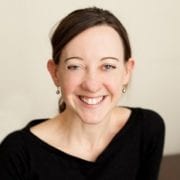 “I think it’s really helpful to memorize short phrases or chunks of language rather than single words. This lets you sound much more natural when you speak or write, because you don’t make strange combinations of words so much, and you automatically know which preposition or article to use.
“I think it’s really helpful to memorize short phrases or chunks of language rather than single words. This lets you sound much more natural when you speak or write, because you don’t make strange combinations of words so much, and you automatically know which preposition or article to use.
It’s also more relaxing because you don’t need to think about every word when you’re speaking – instead you can concentrate on connecting two or three phrases.”
About the Expert
Seonaid Beckwith is an author, English teacher, and the Founder of Perfect English Grammar. She has a Master’s in English and Linguistics from Cambridge University and is very passionate about learning new languages.
“Don’t be Afraid of Failing” – David Recine
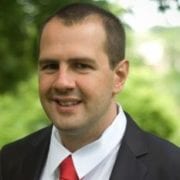 “My best advice on how to become fluent in a language is to use the language. And by this, I mean use your second language freely, naturally, and without fear of failure. Don’t wait until you think you’re fluent enough to use the language well.
“My best advice on how to become fluent in a language is to use the language. And by this, I mean use your second language freely, naturally, and without fear of failure. Don’t wait until you think you’re fluent enough to use the language well.
You can’t actually become fluent unless you start using your second language from the beginning of your studies. Anytime you learn new words and phrases, go out and use the new language in conversation, text messages, and so on.
Don’t worry if you aren’t understood, or if you don’t understand what people say in reply; the first step toward real communication is to try to use what you’ve learned and see what happens.”
About the Expert
David Recine has worked as a language teacher since 2007. He has a Master’s in Teaching English to Speakers of Other Languages and works as the TOEFL and IELTS expert for Magoosh. He’s also currently studying Korean!
“Follow 6 Important Steps” – Iñaki Hernández-Lasa
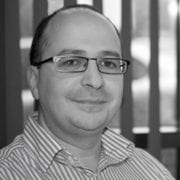 “Learning a language takes effort and commitment. It is a slow process whereby simple language structures and vocabulary gradually expand. There are a number of important elements to bear in mind when deciding to embark into learning a new language:
“Learning a language takes effort and commitment. It is a slow process whereby simple language structures and vocabulary gradually expand. There are a number of important elements to bear in mind when deciding to embark into learning a new language:
1. Immerse yourself – Make sure that you jump into very basic structures and vocabulary from the very outset. Social interaction, progress, and sharing experiences with other people and native speakers of the language is critical.
2. Set small goals – You will not be able to master the subjunctive after a week. Start slowly, with gradual steps, and set clear objectives in mind: short term, medium term, long term.
3. Get friends and family behind you – It is very important that you receive support and acknowledgment for your continued efforts.
4. Try not to use your mother tongue during classes – Once you progress into a more advanced level, rather than using your mother tongue, use descriptions to define terms if you don’t know them in the language you are learning.
5. Read and listen – Nowadays the possibilities are endless compared to many years ago – the Internet, online films, programs, eBooks, documentaries. Start with something that you like. If you are into nature, watch nature documentaries in that language.
6. Visit the country – I firmly believe that for someone to be fully bilingual, they also need to be fully bi-cultural. It is very important not only to speak the language, but also to follow the rules and customs of the country.”
About the Expert
Iñaki Hernández-Lasa has 24 years of experience in the localization industry and currently works at Sajan. He has a Master’s in Translation Studies and previously worked as the Official Translator of Speeches for former President of Ireland, Mary Robinson.
“Practice Using the Language” – Judith Meyer
 “Attitude often makes all the difference. Many people study a language and wait for the day when they will finally have to use the language. That is wrong. The idea of using the language you’re studying should make you giddy with excitement, to the point that you go out of your way to create occasions to use the language.
“Attitude often makes all the difference. Many people study a language and wait for the day when they will finally have to use the language. That is wrong. The idea of using the language you’re studying should make you giddy with excitement, to the point that you go out of your way to create occasions to use the language.
For example, if you live near two supermarkets and one of them has a Mexican cashier, it should be the obvious choice to go to that supermarket, so that you might speak a few sentences of Spanish. The cashier probably also speaks English, but who cares, you’re on a mission – use every minute you can wring out of the day.”
About the Expert
Judith Meyer is a computational linguist who speaks 13 languages. She’s the founder of LearnYu, the author of numerous language books, and is currently on the team over at Amikumu – an app that helps you find language partners near you.
“Immerse Yourself” – Sean Hopwood
 “I believe that the best way to learn a language is to totally immerse yourself in it and one way of doing that is by listening to their local music. If you want to learn Spanish, start listening to Flamenco, Salsa, or other Spanish music.
“I believe that the best way to learn a language is to totally immerse yourself in it and one way of doing that is by listening to their local music. If you want to learn Spanish, start listening to Flamenco, Salsa, or other Spanish music.
If you want to learn Mandarin, start listening to Chinese music. Music puts you and your brain into a state of passion and receptivity. Therefore, listening to the music while translating the lyrics will help you learn faster.”
About the Expert
Sean Hopwood is the President of Day Translations. He is a polyglot, speaking four languages, and he founded Day Translations out of his immense passion for languages and cultures. Sean is currently working on learning three more languages!
SEE ALSO: 5 Common Mistakes New Language Learners Make
“Stay Committed Daily” – Kristoffer Broholm
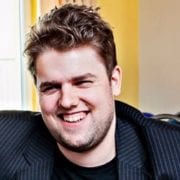 “Learning a language is a wonderful experience and a great way to experience the world, make new friends, and discover other cultures. However, it’s also a long and strenuous process of studying and learning that many people find very difficult.
“Learning a language is a wonderful experience and a great way to experience the world, make new friends, and discover other cultures. However, it’s also a long and strenuous process of studying and learning that many people find very difficult.
In order to successfully learn a language, you have to commit to hundreds and maybe thousands of hours of studying to get where you want to be. You can’t give up after a few weeks because the initial buzz has worn off. Keep going, do something every day, and I’m sure you’ll find yourself progressing much faster than you’d imagine.
Once you’ve got a solid daily routine (15-60 minutes) then I’d suggest looking into tactics and strategies to take your learning to the next level. But make sure the routine is there first, as nothing happens without a solid habit. Enjoy the journey – it’s a great one!”
About the Expert
Kristoffer Broholm is the Founder of Actual Fluency. He’s interviewed over 100 successful language learners on the Actual Fluency Podcast and he speaks six languages to various degrees.
“Understand That it’s a Process” – Laura Lawless
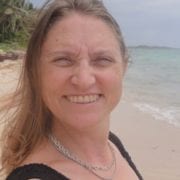 “It’s important to understand that fluency is a gradual process. You won’t wake up one day and suddenly be fluent – you’ll get closer in fits and starts, and eventually you’ll realize you’re fluent without knowing exactly when it happened.
“It’s important to understand that fluency is a gradual process. You won’t wake up one day and suddenly be fluent – you’ll get closer in fits and starts, and eventually you’ll realize you’re fluent without knowing exactly when it happened.
So my best advice is to not worry about fluency: just study and practice every day, in a variety of ways – verb drills, reading novels, watching movies, and talking to people. The more you practice, the more comfortable you’ll feel with the language, and that will eventually turn into fluency.
But don’t wait until then to visit a country where the language is spoken – there’s nothing more motivating than using however much or little you know right now in real-life situations.”
About the Expert
Laura K. Lawless is the Founder of Lawless French and has been a language teacher for 18 years. She’s an expert in French linguistics and has authored several books, including Intermediate French for Dummies.
“Interact with Native Speakers” – John Elkhoury
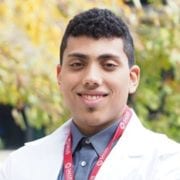 “I believe the best way to become fluent in a language is to interact with natives when you’re abroad, and to form lasting friendships. I know it might be daunting to speak with others, but there’s no substitute to a good conversation in a foreign language.
“I believe the best way to become fluent in a language is to interact with natives when you’re abroad, and to form lasting friendships. I know it might be daunting to speak with others, but there’s no substitute to a good conversation in a foreign language.
I also see a lot of benefit for those who listen to music, watch films, and read the news in their foreign language. All of these things have colloquial speech and they’re a low-pressure way to improve your skills. I still listen to a ton of French music to help myself!
Over time your skills improve and your confidence grows. It’s a long process, but once the journey is complete, it’s very rewarding.”
About the Expert
John Elkhoury founded FrenchCrazy out of his fascination of the French language and culture. He majored in French at Penn State, worked as a teacher in France, and enjoys traveling to the country annually.
“Enjoy the Journey” – Conor Clyne
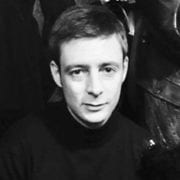 “Learning a language is a long-term undertaking with many obstacles along the way. Maintaining motivation and being consistent is key but more importantly, enjoy the journey, savor overcoming its trials and tribulations, and reaching your goal will be all the more rewarding when it ultimately comes.”
“Learning a language is a long-term undertaking with many obstacles along the way. Maintaining motivation and being consistent is key but more importantly, enjoy the journey, savor overcoming its trials and tribulations, and reaching your goal will be all the more rewarding when it ultimately comes.”
About the Expert
Conor Clyne speaks over 10 languages including French, Italian, German, Russian, Portuguese and Spanish. He has a YouTube channel and website, Language Tsar, where he shares methods to help people learn languages for travel.
Put these nine tips into action and you’ll be on your way to fluency faster than you thought possible. Above all, remember to make learning your target language fun – as it should be!
Try joining an interactive group class for a fun, online learning experience. Watch movies and listen to music, all in your target language. Becoming fluent is a process – but it is worth it!
[pro_ad_display_adzone id=”74612″]
Jessica Dais

